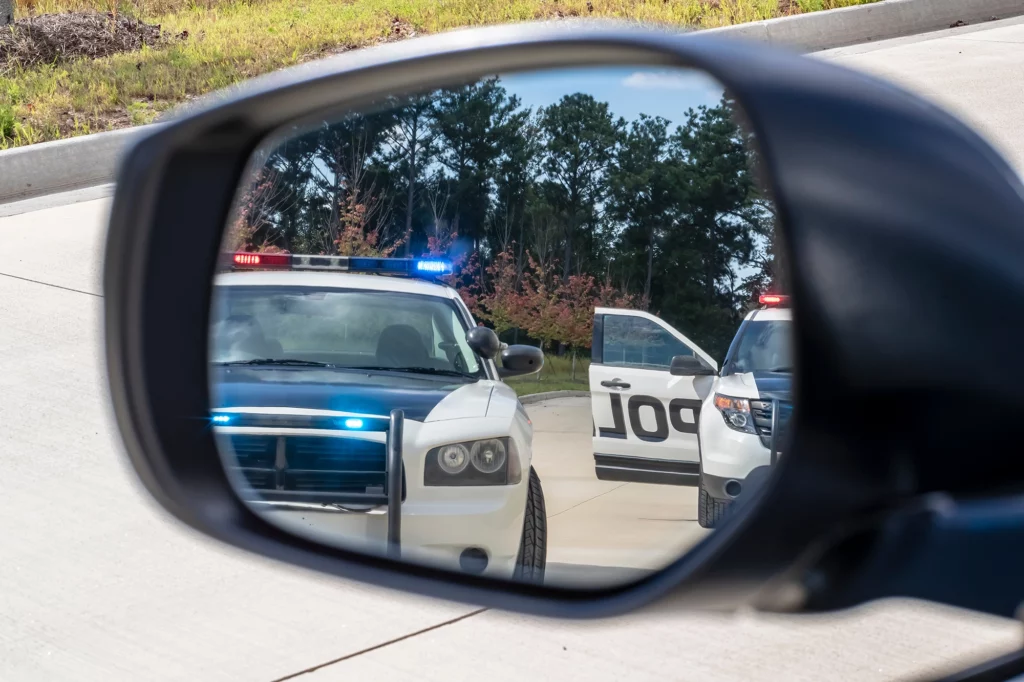The Role of Forensic Evidence in DUI Cases in Nevada City, CA
Driving Under the Influence (DUI) represents a significant legal violation that can result in harsh penalties and lasting repercussions.
In Nevada City, CA, the role of law enforcement and the judicial system in addressing DUI offenses is pivotal, with a particular emphasis on the application of forensic science.
This detailed post explores the indispensable role that forensic evidence holds in the investigation of DUI cases.
It examines how such scientific methods are leveraged to accurately determine the blood alcohol content of individuals, thus influencing the legal proceedings.
Additionally, we will look into how the utilization of forensic evidence extends beyond a mere drunk driving conviction, impacting rehabilitation and prevention strategies.
Understanding the profound effect of forensic science on DUI cases sheds light on its potential to alter the course of individuals’ lives, emphasizing the importance of responsible decision-making and awareness of the legal implications of driving under the influence.

Understanding DUI Laws and Statistics in Nevada City, CA
In Nevada City, the law strictly prohibits operating a vehicle if the driver’s blood alcohol concentration (BAC) reaches or exceeds the legal limit of 0.08%. This legal threshold is designed to ensure road safety and reduce the risk of accidents related to impaired driving.
Recent statistics from Nevada City have indicated a notable increase in the number of DUI arrests, underscoring the critical role that forensic science plays in enforcing these regulations.
Forensic experts utilize advanced techniques to accurately measure the BAC of individuals, providing crucial evidence in DUI cases. This evidence not only helps in the conviction of those who break the law but also serves as a deterrent for potential offenders, emphasizing the importance of responsible drinking and driving behaviors.
The Significance of Forensic Evidence in DUI Cases
Forensic evidence plays a pivotal role in the adjudication of DUI (Driving Under the Influence) cases, serving as a key determiner in the court’s final verdict. This type of evidence encompasses a variety of tests, such as blood analyses, breathalyzer results, urine tests, and field sobriety tests, which are conducted at the time of the alleged offense.
Forensic scientists, with their expertise, meticulously examine the results of these tests. Their analyses aim to accurately establish whether an individual was indeed operating a vehicle while impaired by alcohol or drugs. The precision and reliability of forensic evidence are crucial, as they directly impact the fairness and outcome of the legal proceedings in DUI cases.
Blood Tests
Blood tests are recognized as one of the most precise and reliable methods for determining Blood Alcohol Concentration (BAC) levels.
In Nevada City, law enforcement officers have the authority to request a blood test from drivers they suspect of operating a vehicle under the influence of alcohol or drugs. This procedure involves drawing a blood sample from the individual, which is then securely packaged and sent to a specialized forensic laboratory.
At the laboratory, trained technicians conduct a thorough analysis of the sample to accurately measure the BAC level, providing critical evidence that can be used in legal proceedings related to DUI charges.
Breath Tests
Breath tests, popularly known as breathalyzers, stand as a prevalent technique for gauging Blood Alcohol Concentration (BAC) levels.
Typically, these tests are carried out at the roadside by law enforcement officers as a means to assess impairment.
Despite their widespread use, the reliability of breath tests can be subject to question. The accuracy of the results may be influenced by a range of factors including certain medical conditions that might affect a person’s metabolism, environmental variables that could interfere with the device’s operation, and the necessity for precise calibration of the device to ensure its correct function.
Consequently, while breath tests offer a quick and convenient method for determining BAC levels, their results can be contested based on these potential discrepancies.
Field Sobriety Tests
Field sobriety tests are a series of physical and cognitive assessments that police officers employ to ascertain whether an individual is under the influence of alcohol or drugs, thereby impairing their ability to operate a vehicle safely. These evaluations can involve a variety of exercises, including walking in a straight line, typically heel-to-toe, for a specified number of steps before turning on one foot and returning in the same manner.
Another common test involves standing on one leg for a set period of time without losing balance, which tests the individual’s physical coordination. Additionally, the horizontal gaze nystagmus test requires the subject to follow an object, such as a pen or flashlight, with their eyes while keeping their head still, allowing officers to observe the involuntary jerking of the eye movements that can be exaggerated by impairment.
While these field sobriety tests provide immediate, on-the-spot assessments for officers to gauge a suspect’s level of impairment, it’s important to note that they are not definitively conclusive evidence of intoxication. The results of these tests can be subjective and depend heavily on the officer’s interpretation.
However, when combined with other forms of forensic evidence, such as breathalyzer tests, blood tests, and the officer’s observations of the suspect’s behavior and appearance, they can contribute significantly to building a DUI (Driving Under the Influence) case against the individual.
Despite their limitations, field sobriety tests remain a critical tool in the law enforcement toolkit for identifying potentially impaired drivers and ensuring the safety of the roads for all users.

The Process of Forensic Evidence in DUI Cases
Forensic scientists play an indispensable role in DUI cases by meticulously collecting, analyzing, and presenting evidence in a court of law to support the judicial process. The forensic science process is comprehensive and involves several critical steps to ensure accuracy and reliability:
- Evidence Collection: At the scene of the incident or shortly thereafter, law enforcement officers are responsible for collecting biological samples from the suspect. This may include blood, breath, or urine samples, depending on the situation and the substances being tested for. This step is crucial for ensuring that the evidence reflects the suspect’s state at the time of the incident.
- Analysis: Once the samples are collected, they are handed over to forensic scientists who specialize in analyzing biological samples. Using advanced equipment and sophisticated techniques, such as gas chromatography or mass spectrometry, forensic scientists meticulously examine the samples to determine blood alcohol concentration (BAC) levels or the presence of controlled substances. This step requires a high level of expertise to ensure that the analysis is both accurate and reliable.
- Interpretation: The analysis results are then carefully interpreted by forensic scientists. This involves not just identifying the presence of alcohol or drugs, but also understanding their potential impact on the individual’s ability to operate a vehicle safely. The scientists consider various factors, such as the quantity of substances found and their known effects on human behavior and motor skills, to establish whether the individual was indeed driving under the influence.
- Reporting: Finally, forensic scientists compile a detailed report of their findings. This report includes not only the results of the analysis but also an explanation of the methods used and the interpretation of the findings. The report is designed to be comprehensive enough to be understood by non-scientists, such as judges and jurors, making it a vital piece of evidence in court. It serves as a factual basis for legal arguments and helps the court to make informed decisions regarding the case.
By following these steps, forensic scientists provide critical support to the legal system, ensuring that DUI cases are adjudicated fairly and based on solid scientific evidence. Their work upholds the principles of justice by helping to identify those who endanger public safety by driving under the influence while also ensuring that accusations are supported by reliable and accurate information.
The Impact of Forensic Evidence on DUI Case Outcomes
Forensic evidence is a pivotal factor influencing the outcome of DUI cases in Nevada City. The precision and dependability of forensic analysis are crucial, as they can significantly sway legal decisions, potentially leading to convictions. On the flip side, if the evidence presented is flawed or successfully contested, it may lead to the defendant being acquitted or facing reduced charges.
Consider the scenario of a recent DUI case in Nevada City, where the defendant was ultimately acquitted. This outcome was achieved after their attorney mounted a robust challenge against the accuracy of the breathalyzer test results presented by the prosecution.
The defense meticulously argued that the breathalyzer device, a critical piece of forensic equipment in DUI cases, was not properly calibrated at the time of the test. This calibration error raised doubts about the reliability of the results it produced, suggesting they could not be considered a dependable basis for a conviction. The defense’s argument highlighted the importance of maintaining strict standards for forensic evidence, particularly in cases where such evidence plays a central role in determining the outcome.
The Importance of Accuracy and Reliability in Forensic Analysis
In DUI cases, the accuracy and reliability of forensic analysis hold critical importance. Any instance of inaccurate or contaminated evidence can have dire consequences, leading to wrongful convictions, where innocent people are punished, or wrongful acquittals, where guilty parties are set free.
To prevent such injustices, forensic scientists are obligated to follow rigorous protocols and implement stringent quality control measures. These procedures are essential to maintain the integrity of the evidence, ensuring that it remains untainted and reliable throughout the legal process. This meticulous approach to forensic science is crucial for upholding justice and ensuring that verdicts are based on solid, incontrovertible evidence.

Challenging Forensic Evidence in DUI Cases
Individuals arrested for DUI in Nevada City possess the legal right to contest the forensic evidence presented against them. Hiring an experienced DUI attorney is crucial in these situations.
Such an attorney can meticulously review the evidence and pinpoint potential flaws, including the improper collection, storage, or analysis of biological samples, which could significantly impact the case’s outcome.
Moreover, these legal professionals can scrutinize the credentials and expertise of the forensic scientists involved, ensuring that only qualified personnel have handled the evidence.
This thorough approach can uncover critical defense strategies, potentially leading to a more favorable outcome for the accused.
The Bottom Line
Forensic science is critical in DUI cases in Nevada City, CA. Forensic evidence can make or break a case, from blood tests to field sobriety assessments.
It is essential for individuals facing DUI charges to understand the significance of forensic science and to seek the guidance of a knowledgeable DUI lawyer who can challenge the evidence and protect their rights.
If you find yourself facing DUI charges in Nevada City, CA, remember that the outcome of your case can significantly depend on how well the forensic evidence is challenged and defended.
The WIN Law Firm specializes in DUI defense, providing expert legal representation that can make a crucial difference in your criminal case.
Armed with comprehensive knowledge of forensic science and its application in DUI cases, our team is prepared to scrutinize every detail of the evidence against you.
Don’t leave your future to chance; contact The WIN Law Firm today to ensure your rights are fiercely protected and to increase your chances of a favorable outcome.
